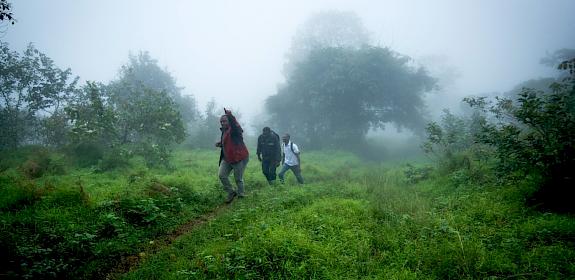Hong Kong poised for critical ivory market debate
Hong Kong, 23rd March 2017—Continuation of Hong Kong’s 150-year-old ivory trade hangs in the balance as the Legislative Council Panel on Environmental Affairs meets next Monday, 27th March, to consider a bill to phase out local ivory trade in the city. The proposed ban will require a legislative amendment in conjunction with a proposal to raise maximum penalties for wildlife crimes.
Discussions during the Panel meeting will be a critical barometer on the level of support from legislators for an ivory ban in the Special Administrative Region of China, as the move precedes submission of an amendment bill to the full Legislative Council in June 2017 for consideration before enactment.
“It is crucial that the Hong Kong SAR Government’s proposed ivory ban gains the support of legislators on the Panel next week,” said Dr Yannick Kuehl, TRAFFIC's Regional Director for East and South Asia.
“Hong Kong’s ivory trade is intrinsically linked with mainland China, which has decisively moved to phase-out ivory trade by the end of the year—Hong Kong must not fall behind. Parity in policy with mainland China is crucial if the full impact of curbing ivory trafficking is to be realised.”
Last year, the Parties to the Convention on International Trade in Endangered Species of Wild Fauna and Flora (CITES) agreed that “all Parties and non-Parties in whose jurisdiction there is a legal domestic market for ivory that is contributing to poaching or illegal trade, [should] take all necessary legislative, regulatory, and enforcement measures to close their domestic markets for commercial trade in raw and worked ivory as a matter of urgency.”
At the same meeting, the Elephant Trade Information System (ETIS) analysis presented by TRAFFIC identified Hong Kong as a “country/territory of primary concern.” This designation meant that Hong Kong was amongst those central to the greatest movements of illegal ivory in the period 2012–2014 and indicated that measures taken pursuant to the National Ivory Action Plan (NIAP) process under CITES have not been sufficient to curb illegal trade in ivory in and through Hong Kong.
Preliminary findings of TRAFFIC’s soon-to-be-released assessment of the Hong Kong ivory market in 2015 and 2016 found 36 percent of ivory traders were willing to sell ivory to buyers intending to take ivory items out of Hong Kong. Hong Kong law stipulates a CITES permit is required for the export of pre-Convention ivory, and failure to do so constitutes smuggling.
Recent evidence from investigations by the Agriculture, Fisheries and Conservation Department suggest some licensed ivory traders in Hong Kong have been breaching the terms of their licence. In a court hearing next Tuesday, evidence will be submitted alleging that a local licensed ivory outlet has offered illegal ivory for sale: radiocarbon dating revealed that a pair of ivory chopsticks purchased at the shop was post-1990 ivory and therefore in contravention of Hong Kong's CITES-implementing law.
From 2009 through 2012, Hong Kong authorities reported making only six commercial-scale seizures of worked ivory products,[1] totalling 156 kg, in which Hong Kong was identified as the “destination”. Between 2013 and 2015, however, the number jumped to 100 seizures, totalling 1,533 kg of worked ivory products, according to analysis of ETIS data.
Clearly illegal ivory processing for Chinese markets is now occurring in Africa on a large scale and if the ongoing seizures of worked ivory in Hong Kong were destined for the local market, wholesale laundering would appear to be occurring in contravention of local laws and CITES
Tom Milliken, TRAFFIC’s Elephant and Rhino Programme Leader“There is no question that Hong Kong remains in the global ivory trade spotlight, both as a transit point serving other ivory markets, particularly in the Chinese mainland, and as an end-use market locally—the Hong Kong Legislative Council needs to do the right thing and strike a blow against illegal trade in ivory.”
Notes:
[1] Seizures of 5 kg or more.





